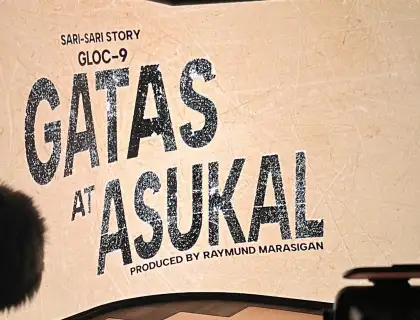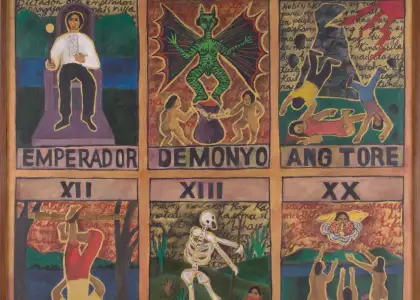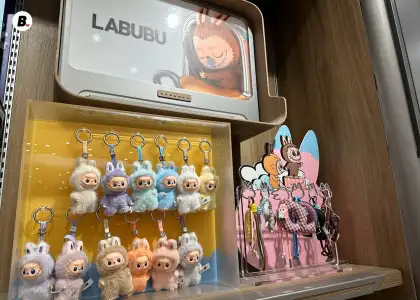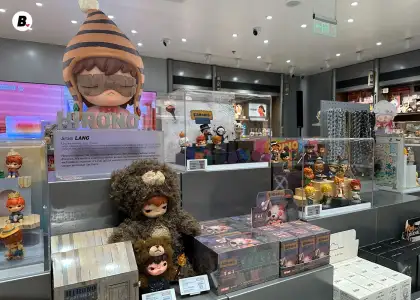Gloc 9’s Sari-Sari Story: Album Review and Listening Party Highlights

The air was electric at Gloc-9’s listening party for his newest album, “Sari-Sari Story,” released just last June 21. The energetic but very intimate event brought together select musicians and music enthusiasts to celebrate yet another collection of groundbreaking, narratively rich tracks. Gloc-9 once again proved his extraordinary talent of creating punchy anthems by holding up a mirror to everyday Filipinos, reflecting their joys, sorrows, and everything in between.
Attending the listening party was an experience in itself. Held at Tower of Doom Studio, a hidden gem that was quite the challenge to locate but absolutely incredible inside, the atmosphere was brimming with the hyped-up spirits of hip-hop artists, rappers, and columnists. Everyone mingled, ate, and drank as Gloc-9’s greatest hits echoed through the dining area, setting the tone for the afternoon.

The event kicked off with a message from Gloc-9 to his collaborators, fans, and Tower of Doom for hosting its inaugural press conference at their 180° LED Room, where he was the first to hold such an event. There was a palpable sense of community among those in attendance. It was more than just an album launch; it felt like a cultural event that brought people together through a shared love of OPM and respect for greatness.
This might be Gloc-9’s first album that does not have his signature rapid-fire delivery. Each of the 10 tracks are either slow or mid-tempo which the Filipino Rap Icon jokingly attributed to his aging. However, his pen is still very much on fire, with his stellar storytelling skills blazing through each song.

Opening track, “Panulat Mo,” chronicles the reality of how economic hardships can complicate love—after a long day at an underpaid job, there’s still the tedious commute home and the pile of laundry to do when you arrive, leaving no time or energy for anything else. The working class is a familiar character in Gloc-9’s compositions, gaining features as well in “Puyat,” the straightforward outpour of exhaustion of a man who cannot afford to sleep because there are others who are desperately willing to endure the same fatigue for the few pesos he is paid; and “Tatlong Taon,” an emotional number about OFWs, balikbayan boxes, and sacrifices that never seem to be gratifying enough.

“Gatas at Asukal” follows the same theme, but pans the spotlight over to the “starving artists” who work twice as hard only to have half a chance of getting noticed in the industry. The album is remarkably cohesive; each song is the epitome of what a “Sari-Sari Story” is. There’s “Utang Clan” which exposes the toxic culture of borrowing money for unnecessary purposes, irresponsible spending instead of fulfilling obligations, and not paying people back; and “Sagip” which tells the unfortunate but comedic story of a snatcher, with an unexpected turn of events at the end.

These plot twists are a common theme in these fresh releases. The romantic song, “Alimpungatan,” for one, feels like the equivalent of a man kneeling down and kissing your feet in reverence…until you hear the entirety of it. It is also the pivotal moment in the focus track entitled “Tinda Ni Linda” — think maneater, but with a twist no one saw coming.
Gloc-9 is also known for pushing boundaries in his work and sparking important, albeit difficult conversations. In this album, he did it with “Yakap,” which appears to be an apostrophic song of gratitude for a friend, a god, or any trustworthy companion. The room fell silent in contemplation when he revealed that the song is actually about a rope in a hangman’s noose. According to the Filipino Rap Icon, it’s necessary to create an environment where people, especially those who are suicidal, can safely express their thoughts and feelings without being shushed due to taboos.

The album ends with “Idol,” an epistolary song mimicking fanmail from an aspiring rapper to his favorite rapper. This is the only track with featured artists, namely G-Clown, Ramdiss, and Hero, whom Gloc-9 praised endlessly throughout the night. When asked who his biggest idol was growing up, he immediately named the late Francis Magalona. His admiration for the Kaleidoscope World singer was so intense that it even influenced his choice in schools.
“Ako ay nag-decide na magka-college ako sa Maynila sa FEU (Far Eastern University) kasisa tapat nun ay Isetann, nandoon 'yung YA-WEAR na store na sinusuot ni [Francis 'yung damit] (I decided I’ll go to college in Manila, in FEU cause in front of that [school] was the Isetann, where the YA-WEAR store was which sells the clothes [Francis wore],” he recalled.

He also recounted standing outside the shop every day during break time in hopes of seeing his role model walk in. He also took the time to honor his collaborators, and acknowledged them as his idols too. “Kung iniisip nila na nakakatulong ako sa kanila, mas nakakatulong sila sa akin (They think that I’m helping them, [but] they’re actually helping me more).”
During the Q&A session, Gloc-9 admitted that he no longer cares about charts. Finding stability has given him more free rein with his artistry without worrying about whether or not it’ll do well in numbers. He just writes whatever speaks to him and the fans who understand his music best. He thanked his producer Raymund Marasigan whom he has worked with for several years now for helping him create hits even as he approaches the “takipsilim (twilight)” of his career — but they’re definitely not laying their pens down yet. The duo joked about dropping “Department Story” to follow up on the success of this album.

Sari-Sari Story is yet again another powerful narrative of the Filipino experience. It’s an album that doesn’t shy away from tough topics but addresses them with empathy, insight, and a little humor on the side. Each track is familiar but fresh, a testament to the rap phenomenon’s trademark style with added reinvention. For long-time fans and new listeners alike, Sari-Sari Story is proof of Gloc-9’s enduring talent and his unwavering commitment to using music as a tool for social change. This is more than just a collection of songs — it’s a journey through the heart and soul of the Filipino.

Get the latest curated content with The Beat Asia’s newsletters. Sign up now for a weekly dose of the best stories, events, and deals delivered straight to your inbox. Don’t miss out! Click here to subscribe.












































































